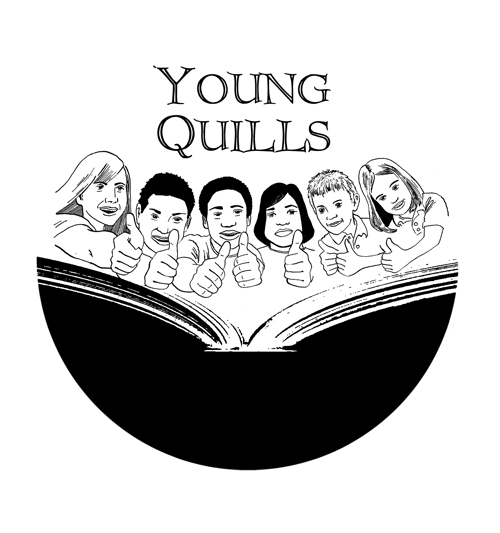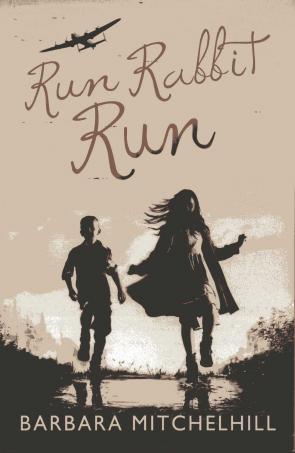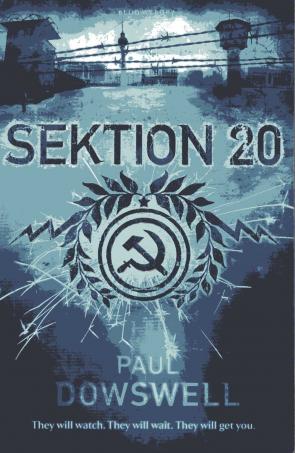Winners of the Young Quills 2012 Prize for Historical Fiction Announced

The Historical Association is pleased to announce that the winners of The Young Quills Awards for 2012 are Barbara Mitchelhill, for Run Rabbit Run, Andersen (2011), in the Primary age group category and in the secondary age group category Paul Dowswell, for Sektion 20, Bloomsbury (2011).
Both of the books published in 2011 excited and enthralled the readers, combining strong personal stories with an historical narrative that was part of the story not simply the backdrop to one.
The Young Quills is a major award for children's historical fiction organised by the Historical Association. Young people nominate, review and shortlist new publications of historical fiction written specifically for their age group. From their reading and discussion two shortlists are made, the best of primary historical fiction and the best of secondary historical fiction. Adult judges are involved only at the last stage to check for historical accuracy and to draw the comments of the young people together.

The awards will be presented to the authors on 3 July at the Macmillan Hall at Senate House in central London, as part of an annual evening event that celebrates and recognises the world of history.
The Young Quills recognise the importance fiction has in developing historical knowledge and understanding for young people. The Historical Association realises the role that novels can play in building enthusiasm for learning about the past. The awards seek to celebrate those authors whose stories bring history to life for young people without creating historical untruths. Any part of human history can be covered and past winners have set their stories across time and continents including ancient Egypt, the Golden age of Spain and Victorian England.
The winning books of this year are both set in the twentieth century:
Primary:
Barbara Mitchelhill, Run Rabbit Run, Andersen Press (2011)
Set in the Second World War it is the story of Lizzie Butterworth and her little brother Freddie live with their dad in Rochdale, Lancashire. Lizzie's Dad is a conscientious objector and after compulsory conscription is introduced the small family go on the run.
The judges felt that:
Judges comments ‘It was a lively story with lots of historical detail. The main characters, Lizzie and Freddie and their dad are really believable. The book captured the feel and attitudes of many during the Second World War. Above all the strong narrative was the strongest feature - bringing to life a difficult issue.'

Secondary:
Paul Dowswell, Sektion 20, Bloomsbury (2011)
Set in East Berlin, Germany during the Cold War, this is an excellent, gripping, atmospheric, convincing tale of one family's attempt to live a normal life. The Ostermann family are under surveillance by the Stasi as the children Alex and Geli begin to oppose the harsh regime, questioning the attitudes and ideals of those around them.
Judges comments: ‘A very good book, with an excellent plot. It is extremely informative whilst conveying the hardships of that era through a reasonably light-hearted and engaging read.'
For further reviews on all of the books shortlisted go to...
The 3 July event will also include the presentation of the prestigious Medlicott award for outstanding contribution to history, which has been awarded to academic and broadcaster Bettany Hughes. Bettany will be speaking at the event about her career and her research.
To find out more about any of the information above contact Paula Kitching at pkitching@hotmail.com or 07720809481.
Further information:
The Historical Association is an independent charity incorporated by Royal Charter. It has been supporting the study and enjoyment of history since 1906. With over 6000 members the HA is the major national organisation for history in the UK, it also has a further 50 local branches with members across the UK. The HA represents the case for an historical education to policy makers and ministers. It advises on curriculum issues at all levels and campaigns for access to specialist historical knowledge and collections. The HA provides the link between academics, teachers, professional deliverers and the amateur enthusiast.

